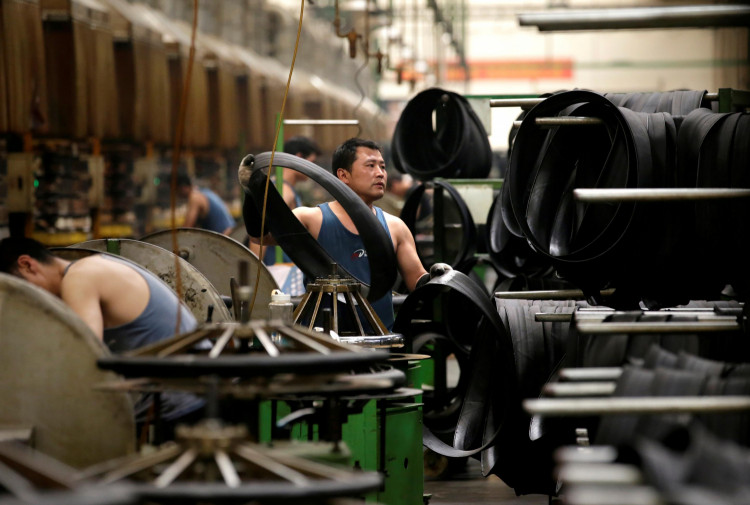Asian shares reversed early losses on Friday as an unexpected bounce in Chinese factory output cushioned some negative notions cast by recent media reports.
China's manufacturing data in the last two years grew at its fastest pace as export deliveries and demand increased, a private enterprise report disclosed early Friday.
The growth, which beat expectations and compared with the dour findings of Thursday's official survey, helped boost Chinese blue chips, which fell by 0.6 percent. Hong Kong's Hang Seng gained 0.4 percent, while Seoul's Kospi was up 0.41 percent.
MSCI's biggest Asia-Pacific stock index outside Japan reversed early losses to gain 0.15 percent, touching Thursday's three-month peak.
The performance of the index reflected a season of results that showed firms to be more resilient than expected, said Jim McCafferty, Nomura's head of Equity Research in Asia.
"If you look at the company's microdata, it tells you that customers keep doing business. So I think we're in a better state than maybe investors thought we were just a month ago," he said.
The Dow Jones Industrial Average was down 0.51 percent, the S&P 500 retreated 0.31 percent and the Nasdaq Composite weakened 0.15 percent.
Washington and Beijing's efforts to put closure on their 15-month trade friction looked on course as U.S. President Donald Trump on Thursday disclosed the two sides would soon announce a new place to ink a "Phase One" deal.
A Bloomberg article citing unnamed Chinese officials dampened morale, raising doubts about the prospect of a substantive long-term trade deal.
China's doubts were "not entirely unexpected," said Greg McKenna, McKenna Macro's strategist, in a morning note to customers, noting a relatively small drop in equity markets.
Retreats in the S&P 500 and the 10-year rate from the U.S. Treasury showed some technical market pressure, he added.
A separate PMI survey released by the Chicago Fed on Thursday showed a sharper contraction in October's production activity in the midwest.
The rate on 10-year Treasury benchmark bills was lower at 1.695 percent on Thursday relative to its U.S. end of 1.691 percent. The two-year yield, sensitive to Federal Reserve's market expectations, was 1.532 percent higher than the U.S. level of 1.526 percent.
Meanwhile, the Fed trimmed down its interest rates for the third time to help support U.S. inflation but indicated that there would be no more reductions unless the economy takes a turn for the worse.






